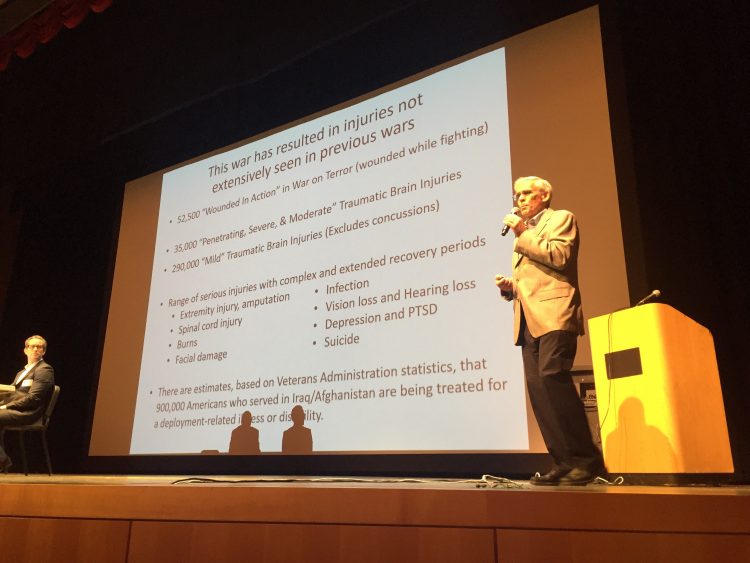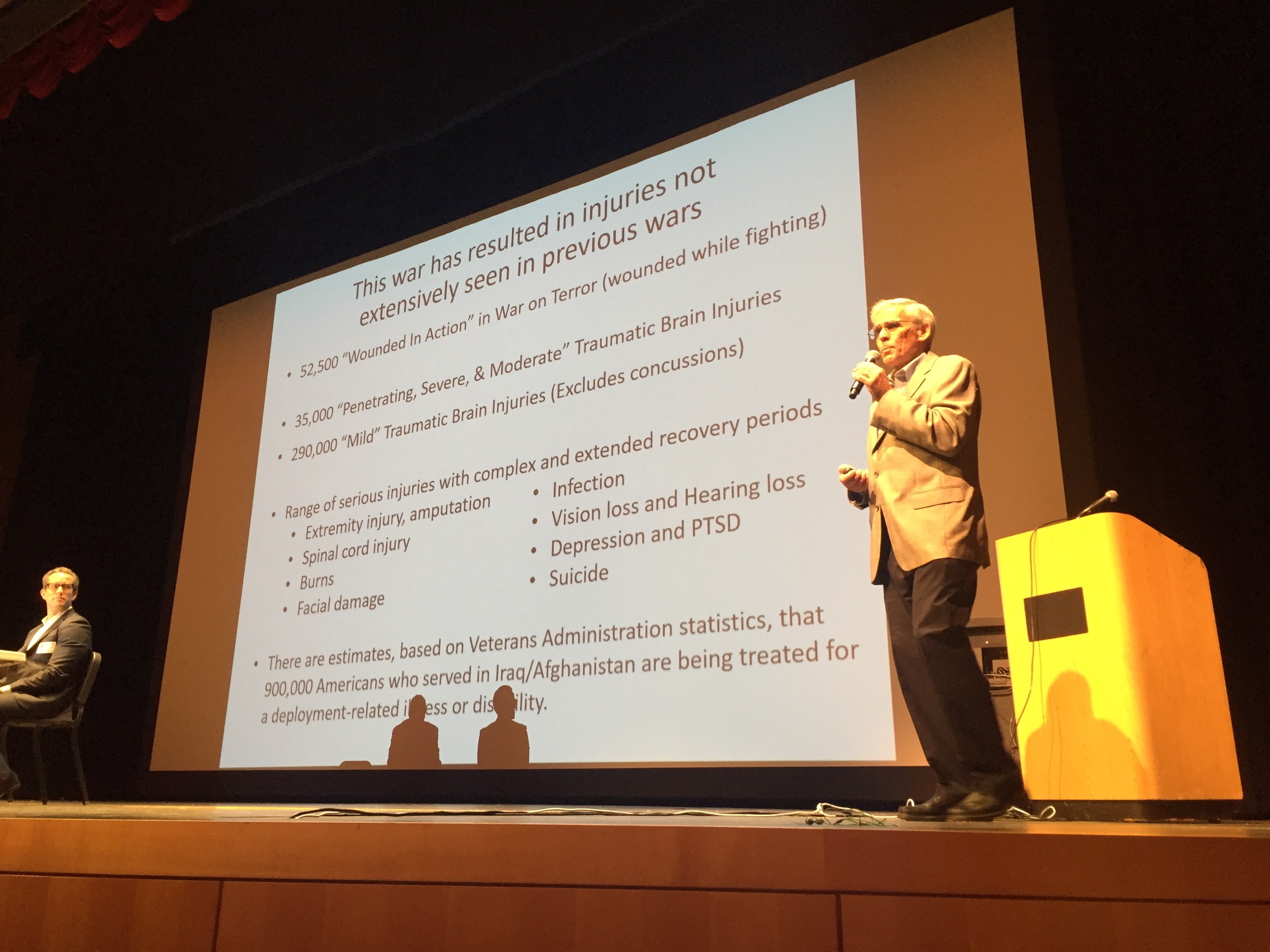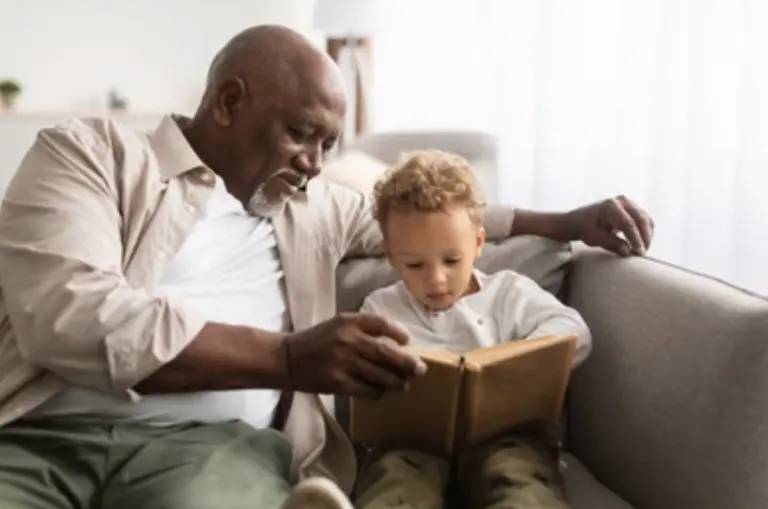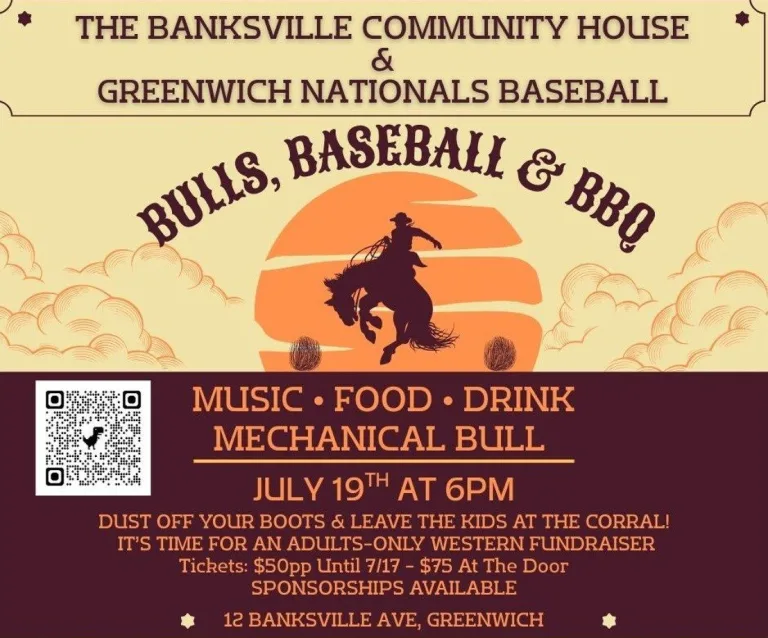

By Richard Kaufman
After hearing a loud explosion from an ambush attack on an ambulance near the city of Baghdad in 2003, George Dutile, a U.S. Marine, jumped into action.
Driving in an armor-less Humvee, Dutile and his team chased after a suspect into an abandoned airfield. Dutile began to feel the vehicle shake just before he was knocked unconscious.
The Humvee had driven near a bunker which held 60,000 pounds of explosives. The blast killed everyone but Dutile, who woke up some time later and tried to continue with the task at hand.
Dutile had broken ribs, one actually piercing his stomach, and a traumatic brain injury from shrapnel. According to the blast radius, Dutile should have been killed along with the rest of his team. But the running theory, he says, is that his tightly-secured vest prevented his organs from liquifying during the shockwaves.

Dutile courageously stayed in the country for a couple weeks afterwards, not wanting to abandon his fellow soldiers. He was ultimately forced to recuperate from his injuries at home, but returned to action overseas several months later.
This is one of many anecdotes students at Greenwich High School heard last Friday in an eye-opening and awe-inspiring assembly. The annually held assembly was about Special Operations in the military during the War on Terrorism, the wounds and injuries veterans incur during battle, and the technology that’s available to help them.
Along with Dutile, a Greenwich resident, Casey Carpenter, who now works in Greenwich, shared his experiences as a Navy SEAL during his time in Afghanistan.
William Howell, a veteran who is a part of a nonprofit organization called Medical Technology Enterprise Consortium (MTEC), which works to devise science-based solutions for the medical challenges troops face on the battlefield, spoke to the medical aspect of the discussion.
Vietnam veteran, Bruce Winningham, moderated the annual assembly, which was created and coordinated by GHS history teacher, Michael Galatioto.
“Most of the folks who went to Iraq and Afghanistan came back without a wound, but no one talks about the ones who did,” Winningham said.

Carpenter wanted to join the military after high school, but instead interrupted his college education in 2008 to become a Navy SEAL because he didn’t want to sit on the sidelines any longer. He served for six years, including nearly two years in Afghanistan.
Carpenter spoke of his first deployment to Afghanistan, which was about “building hearts and minds” in oppressed villages and towns. Troops were based in rural areas, and taught villagers basic lifestyle skills and needs.
“Seeing that as a 23-year-old was pretty eye-opening,” he said.
Carpenter also talked about his injury, which he suffered during a training operation. Wearing night-vision goggles and sliding down a rope out the back of a Chinook Helicopter, Carpenter’s depth-perception was altered and he couldn’t get a firm grasp on the rope. He went anyway, and was able to slow his descent, but ultimately hit the ground and tore the labrum in his hip.
“I continued moving forward because I did not want to miss out on supporting my buddies and going overseas and doing the mission,” Carpenter said.
“You’ll do anything to be there. You’ll push through,” Dutile added. “There’s this passion you have to never let someone down. I think the military really draws that out of you, to constantly want you to do better and to make sure you’re not letting the person next to you down.”
Dutile suffered another severe injury after returning to action in his second deployment when an Improvised Explosive Device detonated, upsetting his previous injuries. Dutile felt he had let his country down.
“I felt I shortchanged the country a bit. I felt like I cheated a bit. I wanted to avenge my own record. I’m highly competitive inside. I wanted to go back at least an additional two to outweigh my first two deployments,” Dutile said. He would serve out 10 deployments over his 16 year career to Iraq, Afghanistan and Africa.
Oftentimes, soldiers are forced to treat themselves in the battlefield before help can arrive.
Howell, who has decades of experience in U.S. Army Medical Operations, talked about several supplies soldiers are equipped with to help them in a time of need, such as a first aid kit, medical oxygen generator, airway tube and freeze-dried plasma.
He also mentioned two important items: self-tying tourniquets and hemostatic dressing to control bleeding.
“With just these two products alone, we took the Killed-In-Action from 12 percent, which means 12 percent of all people who were wounded would die, to under 10 percent, the first time since The Revolutionary War that that number had come down,” Howell said.
At the end of the discussion, Winningham stressed the importance of four main points to the students: make a real difference somewhere in life, change a life for the better, do what you’re really good at and if you have the chance, end an evil.
Dutile closed by telling a story about how he and his team went after a group of men who had committed atrocities against women in Afghanistan because they were trying to receive an education. Women all over the region were being oppressed.
Later on, Dutile was home with his family and reading a book to his daughter called, Good Night Stories For Rebel Girls, when the story of Malala Yousafzai came up. Yousafzai, a young girl from Pakistan, had advocated for girls to receive education. She was subsequently shot by the Taliban in 2012, but survived. She was awarded the Nobel Peace Price in 2014.
“Dad, did you crush these guys?” said Dutile’s five-year-old daughter. “It was the one time I felt in my life where I was like, I did, actually. I did get rid of those guys. It was an opportunity to, when you see a great injustice, be the change you wish to see,” Dutile added.
For a more in-depth look at the experiences of Dutile and Carpenter in the military, keep an eye on Greenwichsentinel.com.





